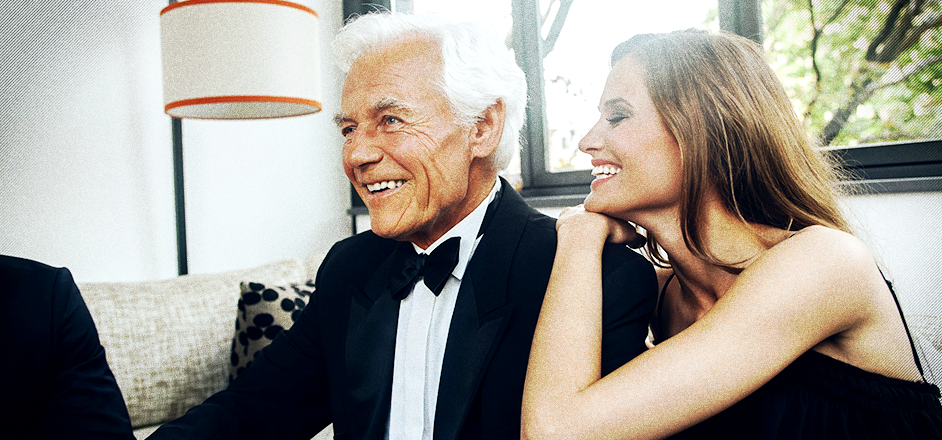In straight relationships in the U.S., the man is 2.3 years older than the woman, on average. This might seem like a small difference to most, but to Mona Chalabi, a journalist famous for her data visualizations, that is a big difference, and a big fucking deal.
It’s why Chalabi wrote “I Want My 2.3 Bonus Years,” a New York Times op-ed that explores why it’s so messed up for single men to seek out younger women, and all the fun things she would do if she could also prolong her time as a young adult by 2.3 extra years.
In the end, Chalabi asks for her fellow straight women to join her in a pledge: stop dating older men. Vow to only date your peers or men who are younger than you.
“It’s a fact of life in the 21st century, and has been for a very long time, but I really think that dating older men is upholding the patriarchy and I really feel a responsibility to stop it,” Chalabi explains in a later interview about her article. She might seem like a feminazi drunk with power, but she makes a compelling point — the age gap in dating is seriously screwed up.
It’s the reason why women become neurotic about getting married and settling down, while men are chillin’ single, knowing they have the option to bide their time for years. Women have to get more serious when they’re younger, straightening out their careers and relationships because they have the sense that responsibility is right around the corner. And it is.
There’s also a huge age gap between when men and women have their first child. On average, women in the U.S. have their first child at the age of 26, while men have their first kid at the age of 31. For those who struggle with maths, that’s a 5 year gap.
Raising a tiny human means sacrifice — it can take a toll on your career, your finances, and your relationships — and women will make those sacrifices an average of 5 years earlier.
Now, consider that women live longer than men, and will likely have to take care of their husbands as they get older. Ideally, women would date men who are either younger or their same age so that husbands and wives would kick the bucket at the same time. Instead, women become parents at a young age, and then become caretakers in their old age, all much earlier than their male partners do.
Another cultural force compelling ladies to settle down sooner: the devaluation of their bodies as they age.
“There’s such a difference in desirability in the dating markets between being a woman in her 20’s and being a woman in her 30’s,” Chalabi says. And she’s got charts and graphs to prove it.

Using data from OKCupid, Chalabi created a visual representation of the ages of men that women find most attractive as they grow older, and the ages of women that men find most attractive as they grow older. The contrast is remarkable.
The graph on the left illustrates that the women are generally always attracted to men who are their same age. Twenty-year-olds are into twenty-year-olds, thirty-year-olds are into thirty-year-olds, and so on down a diagonal line.
The chart for men is drastically different. No matter how old they get, they’re always seeking out women in their early twenties.
“We are socialized into thinking that men are like wine, they get better with time. Whereas women are like cheese, they get blue veins and start to stink,” Chalabi writes in her original piece.
She suggests on-screen depictions of women may be to blame. “When New York magazine looked at the careers of 10 leading men, it found that as they aged, their onscreen love interests didn’t,” she says.
Perhaps we could stop portraying relationships of 60-year-old men with 30-year-old women. We could depict older women as the beautiful lead, as opposed to the mom who wears pearls and turtlenecks and has zero sex appeal.
If not, we perpetuate every woman’s worst nightmare: that she won’t be able to maintain her beauty as she ages, her partner will become less and less attracted to her, and his eyes will start to stray to younger women.
“I truly believe this isn’t biological, it’s all socialized, so what can we as feminists do to fix this?” Chalabi asks. “I think a big part of it is signaling to men: you cannot get with younger women.”
To hold herself accountable and make a conscious effort to spurn older men, she’s changed the settings on all her dating apps. Now, the old fogies are practically exiled from her dating life. She’s become the leader of a movement to stop dating older men, and she’s crushing the patriarchy, one Tinder date at a time.



Leave a Reply